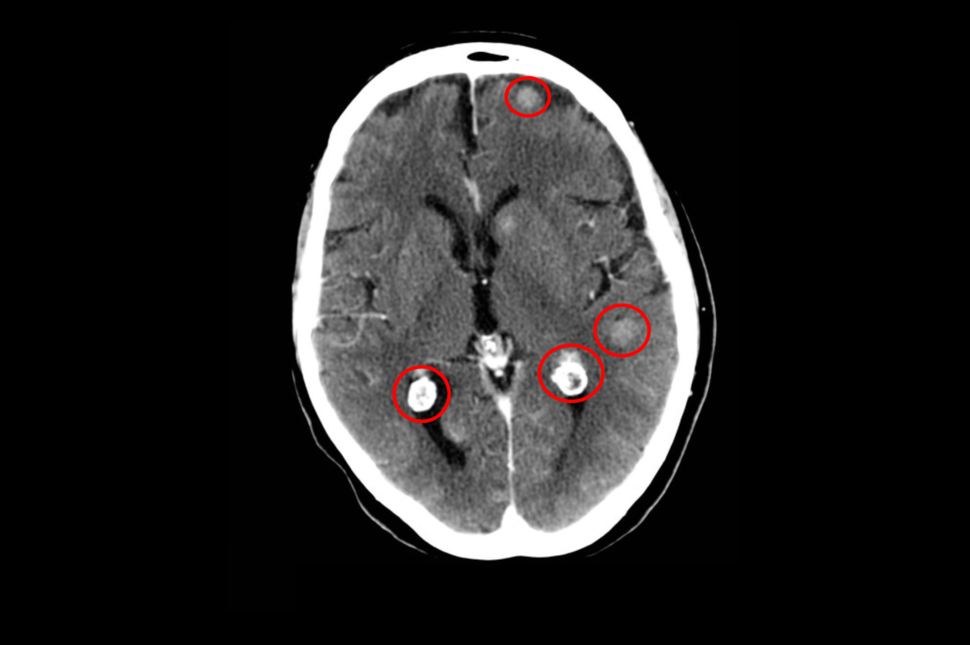Lorlatinib Slows Growth of ALK-Positive Lung Cancers, May Prevent Brain Metastases
, by Edward Winstead
The drug lorlatinib (Lorbrena) is superior to crizotinib (Xalkori) as an initial treatment for people with advanced non-small cell lung cancer (NSCLC) that has changes in the ALK gene, according to new results from a global clinical trial.
The findings are the latest from the CROWN study. Participants were randomly assigned to receive either lorlatinib or crizotinib as a treatment for advanced lung tumors with ALK gene mutations, a disease called ALK-positive lung cancer.
Several years ago, study investigators reported that participants who received lorlatinib went longer without the disease worsening, known as progression-free survival, than those who received crizotinib.
Based on these interim results, the Food and Drug Administration approved lorlatinib for patients with metastatic ALK-positive NSCLC. Crizotinib had previously been approved for this form of lung cancer.
After 5 years of follow-up data, the investigators found, 60% of the participants in the lorlatinib group were alive without the disease having worsened, compared with just 8% of those in the crizotinib group.
In addition, for patients whose lung cancers had spread to the brain, lorlatinib reduced the risk of their tumors progressing and helped prevent new brain metastases better than crizotinib.
“Lorlatinib provides an unprecedented improvement in outcomes” for patients with advanced ALK-positive NSCLC, said study investigator Benjamin Solomon, M.B.B.S., Ph.D., of the Peter MacCallum Cancer Centre, in Melbourne, Australia.
Dr. Solomon presented the results at the American Society of Clinical Oncology (ASCO) annual meeting in Chicago on May 31. The findings were published concurrently in the Journal of Clinical Oncology.
“The new results represent an important update from the CROWN study, which changed our practice for ALK-positive non-small cell lung cancer,” said Chen Zhao, M.D., of NCI’s Center for Cancer Research, who was not involved in the study.
“We now have additional evidence that lorlatinib is effective and safe for patients with advanced ALK-positive lung cancer,” Dr. Zhao continued, noting that the longer-term results did not reveal any previously unknown side effects.
Testing a third-generation ALK inhibitor
About 5% of people with NSCLC have alterations in ALK. These individuals are typically younger than people with other forms of lung cancer and tend to be light smokers or to have never smoked at all.
Because crizotinib was the standard initial treatment for ALK-positive lung cancer when the CROWN trial began in 2017, the researchers used the drug as a comparison to evaluate lorlatinib.
Since then, other drugs that, like crizotinib and lorlatinib, block the activity of mutated ALK proteins, have been approved for ALK-positive NSCLC. These include the so-called second-generation ALK inhibitors ceritinib (Zykadia) and alectinib (Alecensa).
Researchers designed lorlatinib, a third-generation ALK inhibitor, to be effective against tumors that have stopped responding to first- and second-generation ALK inhibitors and to cross the blood-brain barrier.
The drug’s ability to reach the brain is important because ALK-positive lung cancers tend to spread to the brain. In fact, up to 40% of people with the disease develop brain metastases within 2 years of being diagnosed.
Longest-ever progression-free survival, prevents brain metastases
To conduct the CROWN study, researchers randomly assigned 296 participants from 23 countries to receive either lorlatinib or crizotinib. The manufacturer of lorlatinib, Pfizer, funded the trial.
After 5 years of follow-up, the median progression-free survival in the lorlatinib group had not been reached, meaning that more than half of the people who received lorlatinib had not had any disease progression or died during that time. The median progression-free survival was 9 months in the crizotinib group.
The finding matched the longest progression-free survival ever reported in people with advanced NSCLC, according to the researchers.
About 25% of CROWN trial participants had brain metastases when the study began. At 5 years of follow-up, the disease had progressed in only 8% of the patients with brain metastases treated with lorlatinib but in 79% of those treated with crizotinib.
Among the 114 participants in the lorlatinib group who did not have brain metastases when the study began, only four participants went on to develop brain metastases. These results suggest that the drug can not only control but also help prevent brain metastases, the researchers wrote.
Managing side effects of lorlatinib
Treatment-related side effects were more common in the lorlatinib group than in the crizotinib group (77% versus 57%). The most common side effects included swelling from fluid building up in tissues (edema), high cholesterol, and increased blood fat levels (hyperlipidemia).
However, only 5% percent of participants in the lorlatinib group stopped treatment because of side effects, as did 6% of those in the crizotinib group. Some participants in the lorlatinib group stopped treatment because of side effects such as problems with attention and thinking, hyperlipidemia, and heart problems.
“Most side effects were manageable with dose modification when warranted,” said Jessica J. Lin, M.D., a lung cancer expert at the Massachusetts General Hospital who commented on CROWN findings during a panel at the ASCO meeting.
Reducing the dose of lorlatinib during the first 16 weeks of therapy to manage side effects did not diminish the efficacy of the drug, Dr. Lin added.
She noted, however, that chronic side effects of the drug, including cognitive and mood changes, can significantly affect quality of life for some patients. “Therefore, awareness, appropriate counseling, monitoring, and management [of these side effects] is essential,” Dr. Lin said.
Progress and more work to do
A major question for both patients and health care providers, Dr. Zhao said, is whether to use lorlatinib or another ALK inhibitor, such as alectinib, as initial treatment for advanced ALK-positive NSCLC.
The decision, Dr. Zhao continued, will likely depend on factors such as a physician’s prior experience with the drugs, the availability of these medicines, and a patient’s health insurance. Future studies comparing ALK inhibitors could help inform the decision, he added.
At the ASCO annual meeting, Dr. Solomon reflected on the impact that ALK inhibitors have had on many people with ALK-positive lung cancer.
When he began his medical training two decades ago, most patients with metastatic lung cancer did not live more than a year, Dr. Solomon said. “Now, we are seeing patients who are alive after 10-plus years, which is a great thing.”

